July 23rd, 2010
Perhaps nothing makes me more nostalgic for my childhood than memories of summers filled with library books, adventures in the great outdoors, and summer camp. Yet many kids in our society never get to experience these privileges. And what about kids who don’t even have a safe place to play outside or enough food to eat? How do they fill their summer vacation?
Last Tuesday, I was fortunate to meet Gini Williams, the director of the Children’s Fresh Air Farm, a ministry of Independent Presbyterian Church (IPC). She gave me a tour of their summer kids’ academic camp in Bluff Park. The camp serves 34 rising second graders from Whatley and Gibson elementaries who participated in IPC’s STAIR Literacy Program. Campers receive rigorous academic instruction, enrichment activities – and breakfast and lunch – all funded and supported by the church congregation.
Building relationships with those they serve
Campers formed relationships with church members during the school year as participants in their literacy tutoring program, and church members wanted to ensure the students stayed up-to-speed throughout the summer. IPC partnered with the BELL Accelerated Summer Learning Program to design a curriculum that would cover reading, writing, and math, while leaving time for fun activities and recreation in the afternoons.
The church provides daily transportation to the Children’s Fresh Air Farm, a sprawling site tucked away in Bluff Park. It was founded in the 1920s as an overnight camp to get children out of the polluted city air at a time when Birmingham was dominated by the steel industry, and the camp is still an idyllic retreat from the surrounding urban and suburban sprawl.
Responding to community needs
Fresh Air Farm has always been a place where inner-city children from high-poverty areas can experience fresh air and open spaces in a fun camp atmosphere. Over the years, however, the needs of the communities they serve have changed, and IPC listened and responded to those needs.
With summer vacation shrinking, fewer kids were able to commit to sleep-away camps for weeks at a time. Plus, it became clear that many children could benefit from rigorous academic enrichment to bring them up to grade level. IPC found that a day camp could better serve their campers – and so far, it has been a smashing success. 34 of 40 families who were invited to participate enrolled for the 5 week camp, which lasts from 8 to 4:30, Monday through Friday. There was no cost for any family to participate.
Rigorous instruction
Their new learning camp features a morning of academic classes focused on reading, writing and mathematics, taught by licensed, professional teachers. Each classroom is headed by two instructors, so students get extensive one-on-one contact with their teachers. Afternoons feature enrichment activities including music, dance, drama, art, science, Spanish lessons (to bridge cultural divides with Latino students), recreational activities, Christian-focused bible study, and worship in the chapel.
“I’m so excited about all the partnerships we’ve formed this year with community organizations,” says Gini. They host a science teacher from the McWane Science center each week, as well as a gardener from Jones Valley Urban Farm. A church member who is a professional tennis instructor gives the kids tennis lessons, while other church members offer swimming and soccer instruction. Numerous other congregants who have talents and knowledge to offer interact with the kids on a regular basis, while literacy tutors make sure to maintain relationships with their former students.
Every Friday they bring speakers in to talk with the children or take field trips to sites around Birmingham, including the Birmingham Museum of Art, the McWane Science Center, the Civil Rights Institute, and Jones Valley Urban Farms. They recently registered campers for library cards from the Avondale public library; each camper will receive a “License to Read” full of incentives to get involved with innovative library programming.
A place of their own
The camp’s main office is a converted residential space, which offers a homey atmosphere where kids can curl up with books in comfy, overstuffed chairs during afternoon break time. The auxiliary buildings offer all the fixtures of a summer sleep-away camp – bunk cabins, a cafeteria, a pool, a basketball court, a playground, and even a zipline!
“This is such an amazing space,” I said, surveying a huge open lawn surrounded by ancient shade trees, the extensive recreational space, and the walls of books and artwork in the main house. Gini agreed with me, and added “This facility on par with the kind of camp that only affluent kids could normally afford.”
“And these kids deserve this. They deserve all of this.” Gini pauses before going on. “They really deserve better than what they’re getting.”
Eating, growing, and digging in the dirt
In the garden behind the house, the kids tend individual plots growing tomatoes, radishes, carrots, and other plants. Jones Valley Urban Farm’s Seed to Plate program educates campers about growing food and eating healthy. “These kids have never seen cauliflower before,” Gini said to me. “One of our girls called it ‘white broccoli.’ It’s so exciting to teach them new things.”
Children often don’t eat fresh foods at home, and some of the kids may not even have much to eat after after they leave camp at 4:30. Campers get a full breakfast, lunch, and afternoon snack Monday through Friday. “We notice the ones who go back for seconds and thirds at lunch. We try to make sure they get plenty to eat.” During a recent cook out, she remembers, “Some of the girls ate 3 or 4 hamburgers… you have to wonder what they’re getting to eat at home.”
Modeling behavior
“Many of the kids have discipline problems. Anger is a big issue.” As camp director, Gini deals with behavioral problems in a firm but loving way. I noticed character building lessons integrated throughout the camp. They teach the kids to “bless those who curse you” and to show love to their neighbors. One Bible verse reads: A fool gives vent to his anger, but a wise man keeps himself under control (Proverbs 29:11).
But Gini tells me she has witnessed kids’ behavior transform in their weeks at camp. “During their first week here, many kids were saying things like ‘I’m going to shoot you’ or ‘I’m going to kill you’ to each other. Now I see them acting more like children – they’re carefree. They’re so sweet! They see the way our teachers and our youth volunteers act, and they are always hugging and loving on us.
“One child asked me ‘Why are you so nice to me?’ At first I didn’t understand the question.” Gini knows that some kids come from some difficult home environments.
“I don’t want to be corny,” Gini laughs, but “I want this to be a safe space. Every child deserves that.” In their classrooms, children collect stickers for good behavior. “I think a lot of kids are used to getting yelled at in the classroom. We use a lot of positive reinforcement here.”
Engaging environments
Each day, once camper gets a “Scholar of the Day” award to recognize excellence in the classroom. “You would not believe how excited they are to be get this award. It’s just like they won Mr. or Miss USA!”
Gini also goes out of her way to integrate lessons from the classroom into other camp activities. “I try to make every part of this camp interactive. For example, if I hear a teacher or Bible study leader use a word the kids don’t know, I will make it a vocabulary lesson. We have this ‘Cow Word Bank.’ I told the kids that Cow only knows one word – ‘Moo.’ We have to teach Cow new words. It helps the kids remember.”
Recently, Cow learned the word “College.” “It’s really never too early to get them thinking about it!” says Gini.
Campers’ swimsuits hang to dry in the pool house. Former campers decorated the walls
Sustaining relationships, expanding impact
Gini hopes the camp will be able to double its capacity next year, bringing this year’s campers back while accepting a new group of rising 2nd graders. “This is our pilot year. We just don’t know how big this could get, but we have great hopes for the future.” She is also committed to measuring the effectiveness of the camp with standardized tests to show student progress. “I want to know that this is a good thing that is really helping them. I don’t want to just say it is a good thing for them just because I feel like it might be.”
Program participants completed a nationally normed test to assess reading and math abilities before starting camp, and they will re-test again at the end of camp. This will help IPC and Bell evaluate their programming and adjust if needed. That said, Gini knows that the camp is making a difference. “I think the camp is great for the kids, with or without the added value of rigorous academic enrichment. We’re exposing them to new things. We’re building relationships. We’re showing them that we love them.” And Gini notes, “We are all blessed by this too.”
Call it a hunch, but I have a feeling these kids are going to be better prepared when they go back to school next month. The church is investing their time, energy, and money into this program, and the rewards are manifold. Who can put a price on that?
Do you know of a community partnership or ministry that we could feature? Please let us know what’s happening in your community! Email [email protected] to share your stories.
Posted by Robyn Hyden
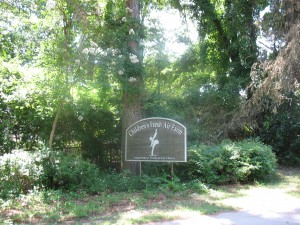
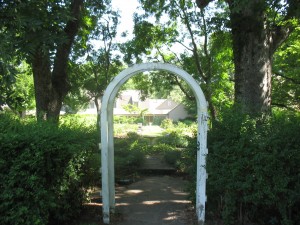
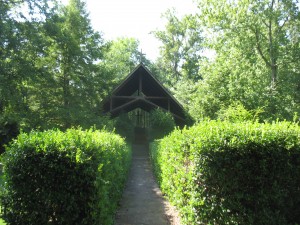
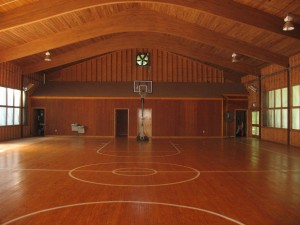
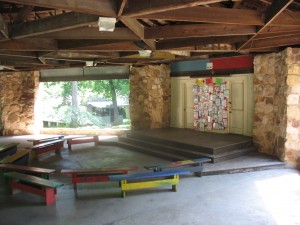
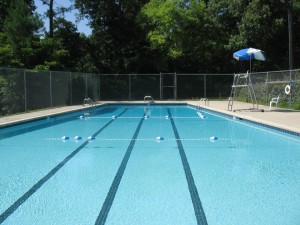
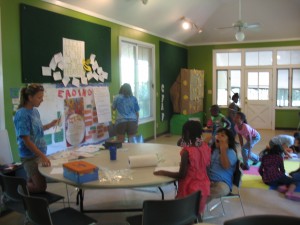
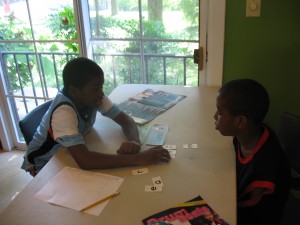
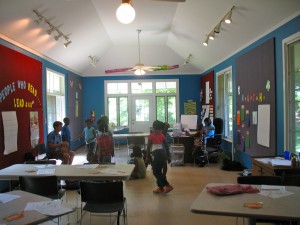
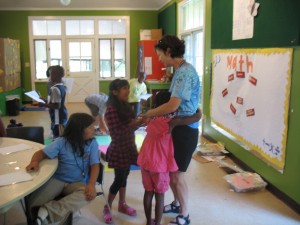


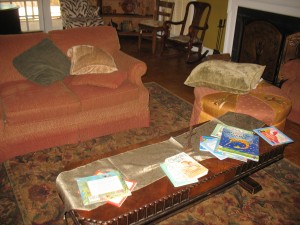
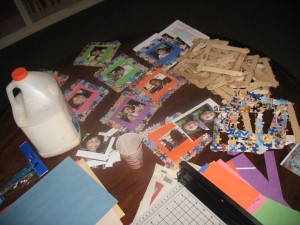
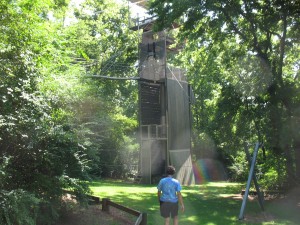
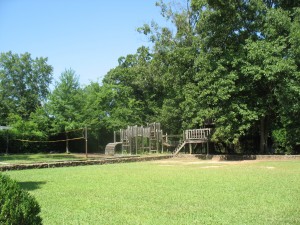
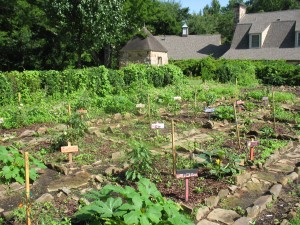
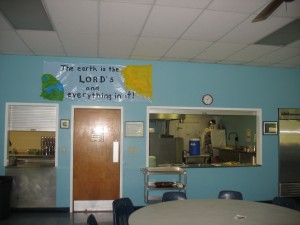
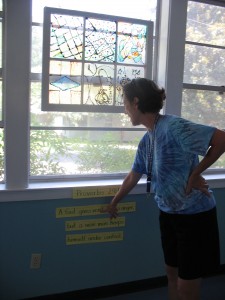
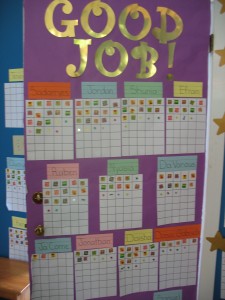

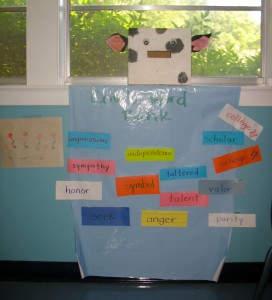
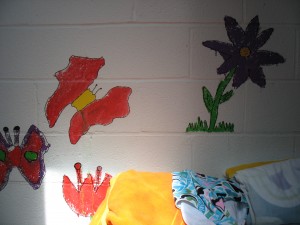
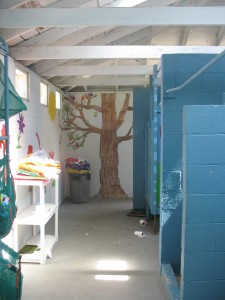
This is beyond amazing! I’ve thought all these years that it was just closed down. I went to children’s fresh air farm for 4 summers straight. It was one of my best experiences as a child. I tell my children all the time about the rocking climbing, swimming, the cafeteria, singing at the flag in the morning before breakfast and the friendships built throughout those summers. I would have loved for my children to attend something of this nature. I would just like to Thank the founder for being apart of my childhood memories
I attended CFAF from 1976 to 1979. Those were the best summers of my life. I remember hoisting the flag in the mornings and lowering it every evening. I remember camp outs, singing on the cafeteria lines, even the names of the cabins. I was a Hummingbird, a Bluebird, a Wren, and a Redbird. I learned to swim at CFAF. I loved my garden and chapel. I loved when our cabin served in the cafeteria and trails to the library in the “White House”. Those really were some of my fondest memories and I’ll never forget them or CFAF!!!